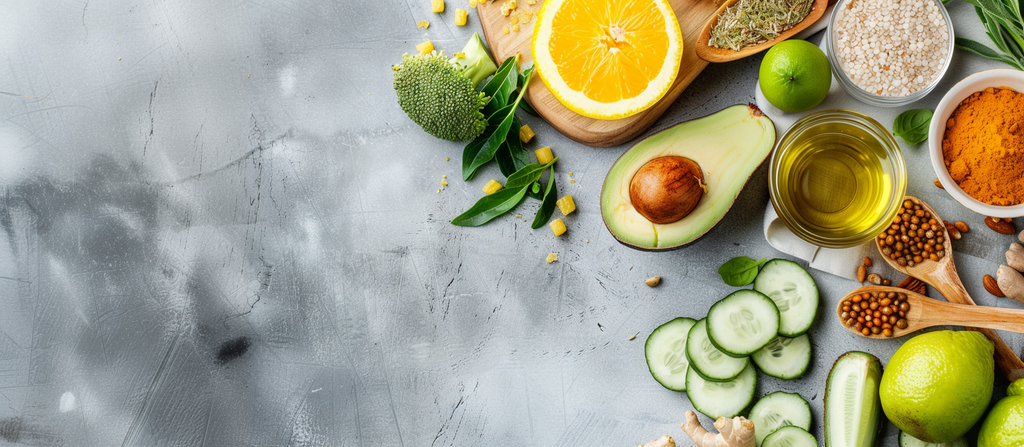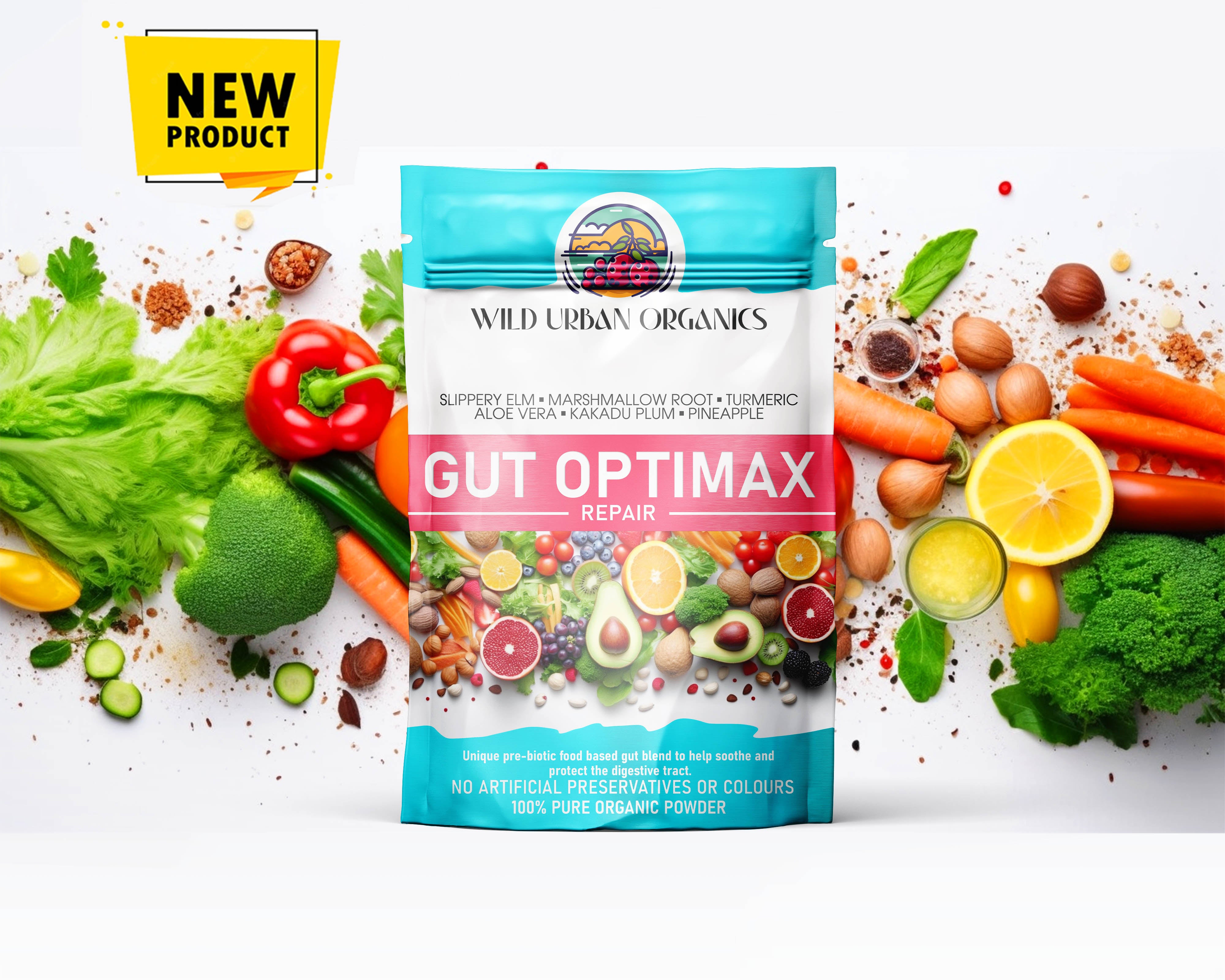As a naturopath with an understanding of the gut microbiome and its impact on overall health, This informative guide will explore the best food sources and natural supplements to support a thriving gut, paving the way for a healthier you.
Key Takeaways
| What are probiotics? | Live bacteria that offer health benefits when consumed. |
|---|---|
| Why are probiotics important for gut health? | They promote a balanced gut microbiome, aiding digestion, immunity, and overall well-being. |
| What are the best food sources of probiotics? | Fermented foods like yogurt, kefir, kimchi, sauerkraut, and tempeh. |
| What are the benefits of probiotic supplements? | May offer targeted support for specific gut issues and can be a convenient way to boost probiotic intake. |
| How to choose a high-quality probiotic supplement? | Look for strains with research-backed benefits, a diverse blend, and CFUs (colony-forming units) suited to your needs. |

Understanding the Gut Microbiome and the Power of Probiotics
The gut microbiome is a complex ecosystem teeming with trillions of microorganisms, mainly bacteria. These bacteria play a crucial role in digestion, nutrient absorption, immune function, and even mood regulation. Probiotics are the "good guys" within this ecosystem. They help maintain a healthy balance by crowding out harmful bacteria, promoting the production of beneficial metabolites, and strengthening the gut barrier.
Gut Health: A Foundation for Overall Well-being
Maintaining a healthy gut is essential for a strong foundation of well-being. When our gut bacteria are balanced, we experience:
-
Improved digestion: Probiotics aid in breaking down food particles, easing bloating, constipation, and diarrhea.
-
Enhanced immunity: A balanced gut microbiome strengthens the gut barrier, which acts as our first line of defense against pathogens.
-
Boosted mood: The gut-brain connection is real! Studies suggest probiotics may positively influence mood and reduce symptoms of anxiety and depression.

Fueling Your Gut with Fermented Food Powerhouses
Nature offers a bounty of probiotic-rich foods that can be easily incorporated into your diet:
-
Yogurt: A classic choice, opt for plain, organic yogurt with live and active cultures like Lactobacillus and Bifidobacterium.
-
Kefir: This tangy fermented milk drink boasts a wider variety of probiotic strains compared to yogurt, making it a potent gut booster.
-
Kimchi: This spicy Korean staple is packed with beneficial bacteria like Lactobacillus kimchi.
-
Sauerkraut: This fermented cabbage is a delicious source of probiotics and vitamin K2, important for bone health.
-
Tempeh: A fermented soybean cake, tempeh provides protein, probiotics, and prebiotics (food for probiotics) for a gut-friendly trifecta.

Exploring Probiotic Supplements
While a balanced diet rich in fermented foods is ideal, probiotic supplements can offer a convenient and concentrated way to boost your intake. Here's what to consider when choosing a high-quality supplement:
-
Strain selection: Look for supplements with well-researched probiotic strains like Lactobacillus acidophilus, Bifidobacterium bifidum, and Saccharomyces boulardii.
-
Diversity: A diverse blend of strains often provides broader benefits than single-strain options.
- CFU count: CFUs (colony-forming units) indicate the number of viable probiotic bacteria per serving. The recommended dosage varies depending on your individual needs and the specific strains used.
Empowering Your Gut Health Journey
- Focus on a well-rounded gut health diet: Prioritize fiber-rich fruits, vegetables, and whole grains to feed the good gut bacteria.
- Introduce fermented foods gradually: Start with small portions and listen to your body's response.
- Consider a probiotic supplement: Discuss your needs with your healthcare provider to find the right option for you.
- Manage stress: Chronic stress can disrupt gut health. Practice relaxation techniques like yoga or meditation.
- Prioritize sleep: Adequate sleep allows your gut time to repair and regenerate.
By embracing these tips and incorporating the power of probiotics, you can take charge of your gut health and cultivate a thriving inner ecosystem!

Specific Conditions:
- Gut health and digestion:
- Explore how probiotics can alleviate symptoms of irritable bowel syndrome (IBS) and inflammatory bowel disease (IBD) by reducing inflammation and promoting regularity.
- Discuss the role of probiotics in lactose intolerance by aiding the digestion of lactose sugar.
- Gut health and immunity:
- Explain how a balanced gut microbiome strengthens the immune system and reduces the risk of allergies and autoimmune conditions.
- Gut health and mood:
- Delve into the gut-brain connection and how probiotics may influence mood regulation and potentially alleviate symptoms of anxiety and depression.
Click here: to view our range of supplement powders
Probiotic Powerhouses: Beyond the Basics
-
Kombucha: This fermented tea drink is a trendy source of probiotics and antioxidants. However, be mindful of potential sugar content and opt for low-sugar or unsweetened varieties.
-
Miso: A fermented soybean paste used in Japanese cuisine, miso offers probiotics and a unique savory flavor. Look for unpasteurized miso to retain the live bacteria.
-
Natto: A traditional Japanese food made from fermented soybeans, natto boasts a strong flavor and powerful probiotic benefits. Its sticky texture may be an acquired taste, but it's a nutritional powerhouse.
-
Sauerkraut Juice: Packed with probiotics and vitamins, sauerkraut juice can be a gut-boosting addition to your diet. Start with diluted portions due to its strong flavor and acidity.

Maintaining Probiotic Potency
- Storage: Probiotic foods and supplements should be stored according to label instructions, often requiring refrigeration to maintain bacterial viability.
- Processing: Opt for minimally processed fermented foods and choose supplements that avoid harsh processing methods that can damage probiotic bacteria.
Remember: Consult your healthcare provider before starting any new supplements, especially if you have underlying health conditions.
By incorporating gut-friendly fermented foods and considering high-quality probiotic supplements, you can empower your gut microbiome and unlock a path to a healthier, happier you. Embrace the power of probiotics and nurture your gut for a lifetime of well-being!












